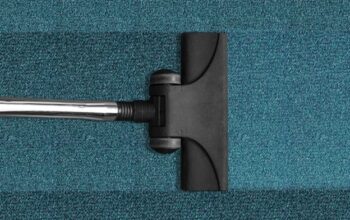Every successful manager or entrepreneur knows that, no matter how internal structure of some company may be developed, and chain of command flawless, workers are what’s keeping the company alive. That’s why communication and personal relationships within individual teams in the company need to be devoid of any problems. Such a big concern certainly didn’t pass unnoticed and today, team building has become a science of its own. Let us peak behind the curtain and see what we can do to improve team efficiency on some more grounded, practical level.
The Take Away Game
All you need for this simple activity are 15 coins of any kind. Create several teams of two, or face one group against the other. In the latter case representatives of each team will have to play in turns, though. Once the teams are set up, coin is tossed to determine who goes first and each side can remove two coins from the pile every time they call it correctly. The winning team is the one which removes the last coin. The game can be made more complex by allowing teams to pull more than two coins out, or return some of them in the game. This game rarely lasts more than 15 minutes, but involves a lot of strategy and communication, so it is a perfect team-building exercise which can be conducted on daily basis.
The Tea and Coffee Memory Game
This simple exercise demonstrates the importance of organizing and structuring information in order to maximize the effectiveness of communication. All you need to conduct it is pens and a paper, and eight to twelve participants. Each of participants should tell to the rest of the group what he or she would like to drink at the moment, and write down what each person said, after all of them had their turn. The winner is the person which recalled wishes most accurately. Ask participants to discuss their memorization process in order to enhance information structuring within the team.
The Bond-Strengthening Game
Gather the team-members into the conference room and place the stack of index cards on the table. Ask the participants to tape one index card on each other’s back and write something positive about them on it. Don’t rush the team-members, but don’t let them to write more than 20 minutes, either. You want the reactions to be as spontaneous as possible. At the end of the game, each of the participants should have a number of very nice things written about them. This is very important, because your employees need to know that, even if personal relationships within the team may sometimes be broken, other people are still able to notice and appreciate their virtues.
The “This is me” Game
In order for some team to function properly, each of the team-members need to feel free enough to express his thoughts to the rest of the fellow workers. This exercise enables each delegate to create symbolic representation of him/herself using various “bits and pieces” or from symbolic things written or drawn by the other participants. Preparations for the exercise should last no more than 5 minutes, but the very activity can extend up to 30 minutes or more, if necessary. Facilitator should prepare a big box of bits and pieces (magazines with lots of pictures, scissors, small children toys, playing cards, modeling clay, and other random symbolic things) and ask the participants to use assemble the combination of symbols that best represent themselves. Alternatively, participants can draw or write on 15 small papers each and put them in the box as a substitute for the symbolic items.
Even if some of these games may sound to “out-there” they are indeed very helpful means for achieving better communication, and therefore efficiency of team s within your company. If you feel that something is wrong on this basic, but the most important level, don’t hesitate to apply these methods on your employees. You will certainly be satisfied with results.


